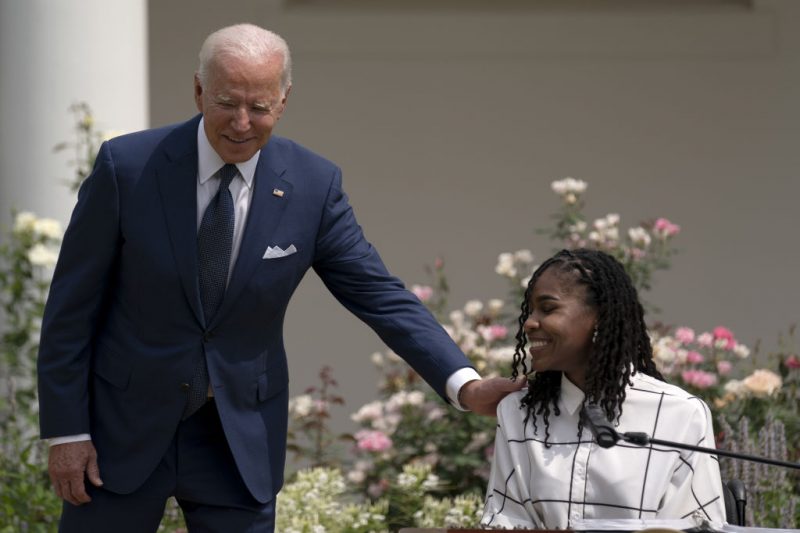
Bloomberg
Joe Biden commemorated the 31st anniversary of The American’s with Disabilities Act on July 26. Signed into law by George H.W. Bush on July 26, 1990, the powerful piece of legislation prohibited discrimination on disability and further required employees to provide reasonable accommodations to disabled employees.
Perhaps most importantly, we did it together,” Biden said of the bill which he co-sponsored as a senator.
“This was a Democratic bill that was signed by a Republican president. A product of passion and compassion, not partisanship, progress that wasn’t political but personal to millions of families.”
However, we can’t help but pay tribute to a few Black women who played a vital role in championing rights for Black people within the disability community.
Johnnie Lacy helped to found the Center for Independent Living at Berkeley and later became the Director of Community Resources for Independent Living in its early beginnings. From 1981 to 1994 the activist spawned groundbreaking conversations and research about the challenges of Black women coping with disabilities.
Our next #BHM profile is Johnnie Lacy, a prominent disability rights activist, leader in the independent living movement, and former director of Community Resources for Independent Living in Hayward, CA. Read her story here: https://t.co/sA3Jcukv6K #BlackDisabledLivesMatter pic.twitter.com/byct8nrBiG
— AAPD (@AAPD) February 18, 2021
https://platform.twitter.com/widgets.js
Lacy was officially diagnosed with polio at 19. Audio transcriptions of the scholar revealed that her inspiration behind pushing for civil rights within the disability community ignited from an incident that happened during her studies at San Francisco University. Lacy was hit with discrimination by a few administrative staffers who tried to prevent her from pursuing a degree in speech therapy.
“..And the head of the department by this time said, “If you apply, I will not accept you. And the only other alternative you have is that you can take graduate courses on your own and work on your own, but you will not become a part of the department,” she recalled of the experience.
Bessie Virginia Blount was another Black woman who made significant breakthroughs in technology for World War II veteran amputees.
Blount believed that people with disabilities should be able to feel empowered and independent. To achieve this, the change-maker created a tube that helped to transport food in disabled patients’ mouths. The device paved the way for more advancements in the health field.
“After coming in contact with paralyzed cases known as diplegia and quadriplegia (blind paralysis), I decided to make this my life’s work,” Blount previously told Afro-American.









